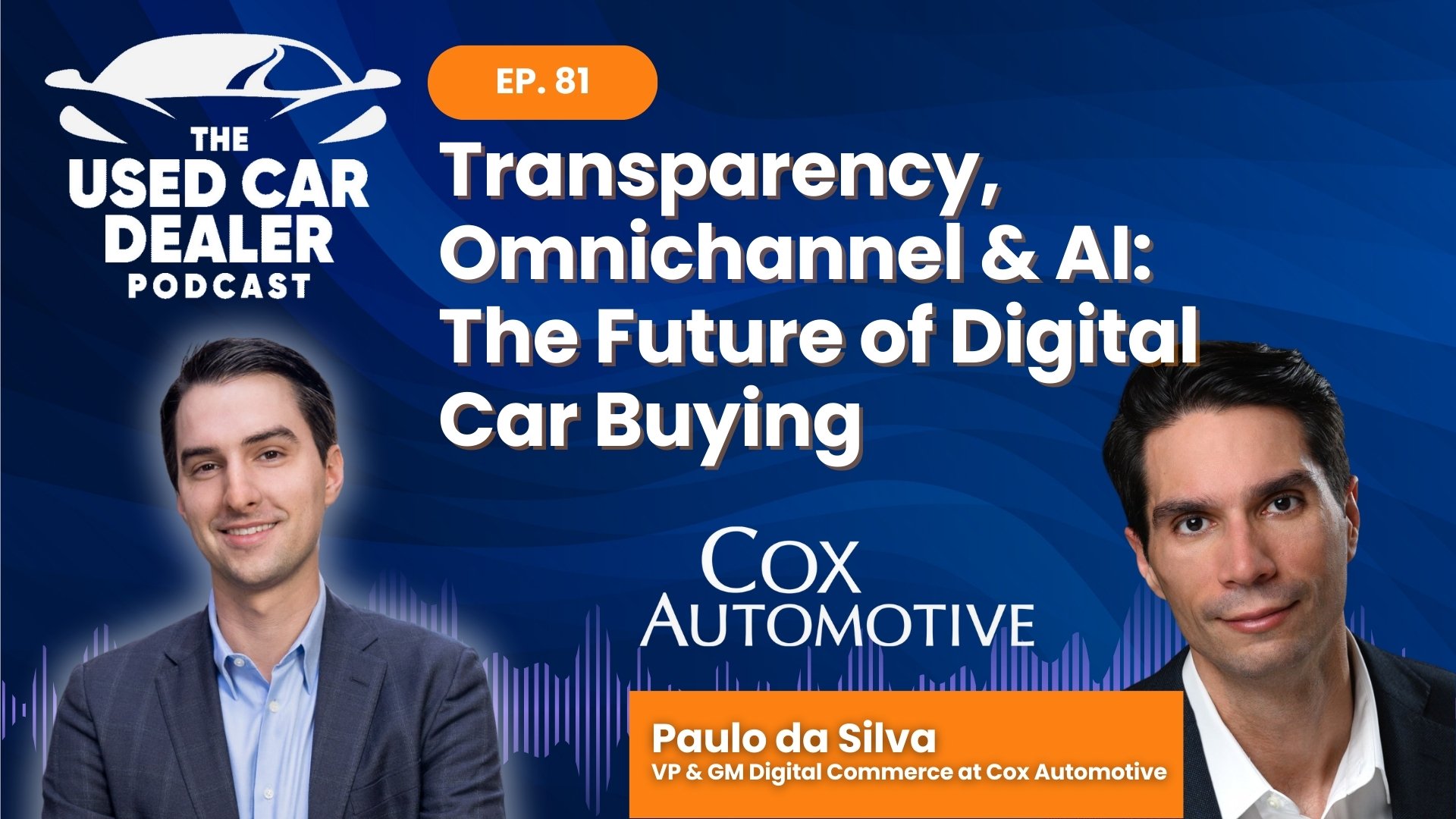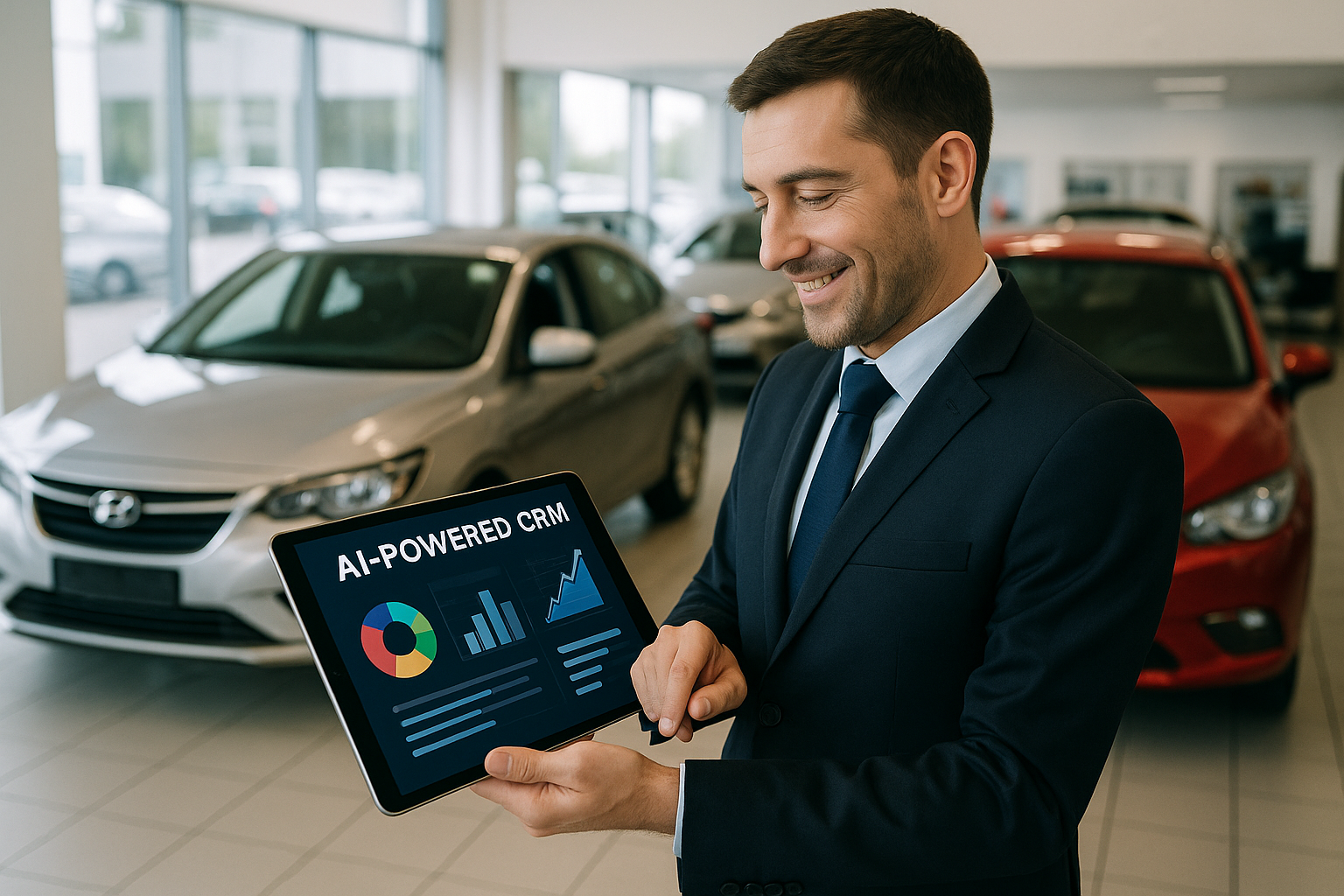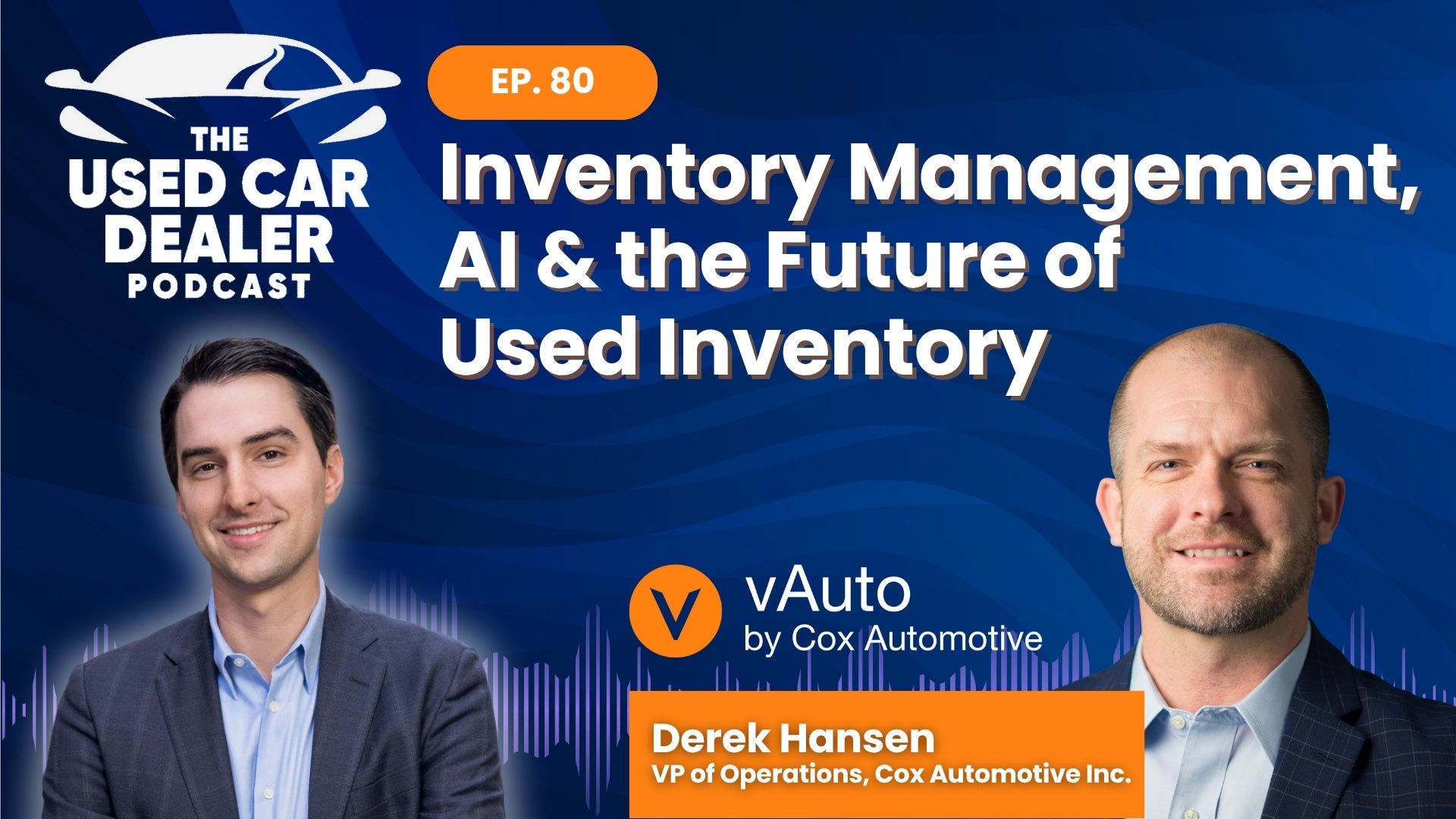This is a transcribe of a podcast interview with Bob Voltman the CEO of the NIADA recorded July 2, 2021.
Zach: Hello, Zach here, and we have an awesome guest on the podcast today, Bob Voltmann, who is the CEO of the NIADA. Bob, thank you so much for joining the podcast today. How are you doing?
Bob: I'm great, Zach, thank you for having me.
Zach: So let's get started. For those of us listening, talk about your previous experience in the conference/convention space, and what led you to work with used car dealers in the NIADA.
Bob: So most of my career has been spent in trade associations, 36 years, with various trade associations, and most of those working with entrepreneurs. I've been at trade associations representing third-party logistics companies. And we have had great success. I took that association and from $720,000, in revenue to seven and a half million from 500 member company to over 1700. But that industry was changing. There's a lot of Wall Street money going into it, companies are being rolled up. And they were no longer entrepreneurs, they were more middle managers. And I wanted to get back to working with entrepreneurs. I especially wanted to get back to working with entrepreneurs that were integral in their communities. Because I knew that coming out of the pandemic, we were going to have to rebuild our economy. And the independent car dealers are so integral to their community and putting people in cars, it was just an ideal situation. And to the icing on the cake was my wife and I are both from Texas. We've been in Washington for 33 years. And it was a great opportunity to come back home.
Zach: Nice and talk to me about what it was like to start at the NIADA in October 2020 when the pandemic was still going on, and what was that experience like?
Bob: It's crazy, I still haven't met half of my staff. You know, the board, the interview process started on zoom and ended in person. And when I told the board, what I would do in my first 30 days, I would conduct a listening tour. And that's what I did. I talked to about 100 people, the staff, the board the state executives, the state board presidents, and leading vendors in leaders within key constituent groups. With that, I brought a report back to the board and we reorganized the staff. We developed a SWOT analysis. From that SWOT analysis over the next 30 days, we put together a draft strategic plan. And the board adopted that three months in. And since that time, we've been implementing the strategic plan, and that the goal is to make NIADA more effective for the members in our state. But back to your original question, which is how did I do? How do you do this? How do you change jobs industries, in the middle of a pandemic, when nobody's traveling? Zoom. Which was a godsend, and I was zoomed before zoom was cool. I bought zoom at my last Association in 2018. Back when you used to get sweatshirts and swag from them when you bought zoom. So we've been and we all got used to this, we all got used to this kind of Jetson-esque interaction with each other. And so it's been very easy. I look forward to actually meeting people. But at least we get to see each other and interact with each other.
Zach: Agreed. And I was gonna say we've been longtime zoom users as well doing virtual dealer training, and so on and so forth. So 2021 moving into the new year has also been a roller coaster of a year for the auto industry. Talk to me about what you've observed from your lens at the NIADA in 2021?
Bob: 2021. As it is, it's an unpredictable year. So everybody was in the same boat in 2019 or 20. I'm sorry, it hit us all cold out of the blue we were having we were roaring as an economy. We go into March, everything is great. And then somebody turns the switch off. And we stopped and had to like, manage through 2021. That switch has been turned on. But it's unpredictable. We don't really know what it means yet. And then you add to the fact that for some reason, we decided it was a good idea to source all our electronic parts from China. So that shut down the new car vehicles, people were holding on to cars longer. So there's this great competition for used vehicles. And that is the story of 2021. At least these first months of 2021 is inventory and access to inventory.
Zach: What are your biggest initiatives this year as an association when it comes to issues that are directly impacting used car dealerships?
Bob: To make the association more important and useful to the members. We've refocused the strategic plan which refocuses our initiative on the dealers and the states to provide more resources, more information, more education that's usable to them. Right now. We are expanding on service. You know, not just our service, but automobile service, helping dealers understand how they can add a service component to their operations, helping those that do have service components. We are expanding our education and our 20 groups and benchmarking.
We're going to develop more research and information for members. We've increased our advocacy in Washington DC by hiring full-time DC-based staff for the first time ever, and NIADA is meeting on a quarterly basis with the Consumer Finance Protection Board. And for the first time ever, and AIDA is on Capitol Hill and at theev vehicle regulatory agencies every day. So you know, in Washington, we have a saying because I spent 33 years in Washington, we have a saying, if you're not at the table, you're on the menu. And then NIADA is now at the table every day. So those are huge initiatives, we've got to help our state organizations become stronger in their service to the members. So that's what's all outlined in our strategic plan.
Zach: So for the dealers listening, discuss the importance of not only joining a state-level Association but the National Association and how it can help them be more successful.
Bob: Number one, it's information. You know, everybody has a unique business. No two dealerships are alike. But what you experience is alike. And that network of being able to share experience, share ideas, in a safe environment is essential information, what's worked for other people what hasn't worked for other dealerships, you only get that from an association, then you have advocacy. Nothing can affect your business faster than bad public policy, or bad regulation. And we're your voice to do that. And there's also professionalism. People look at associations as a way of legitimizing certifying the professionalism of the entity they're dealing with, do you want to go to a doctor who wasn't part of the American Medical Association or their subset, you want to go to a lawyer who's not part of the American Bar Association won't go to a vet or any any, you know, go down the list. So information, education, advocacy, legitimacy, and professionalism. Those are the reasons you join an association and all of those lead to profitability.
Zach: Those are some great reasons. And I want to kind of shift gears now and talk to you about a couple of hot topics in the auto industry right now. So we'll start out with online dealers like Carvana and Vroom and their new kind of online first model. What are your thoughts on these disruptors?
Bob: I think its more impact on newer vehicles. So I think they'll have more impact on the franchise dealers, and the independent dealers who are selling newer vehicles. You know, the idea that you're buying a car without ever seeing it, or touching it or driving, it seems odd to me. And I think so I think it's, I think it's something we have to watch. But there are ways we can help. The Independent dealers compete. I'm a firm believer that small can be big, every day of the week through service, and strategy. So what is Carvana selling, they're selling delivery of the vehicle, we can help do that. They're making it easier to buy online, what we found out during the pandemic, you know, so Bank of America did a study early on this year. And they said we had 10 years of evolution in three months, in 2020. If you didn't have a business continuity plan in March, the beginning of March of 20, you sure as hell did by the end of March of 2020. We buy everything online now. So we don't want to spend a lot of time in the dealerships. You know, when you talk to people about what they like, and they don't like about the car buying experience, it's how much time it takes. Well, that can all be streamlined. That's what Carvana is selling is that streamlined service. We can help the dealers do that. And that's what we're working on.
Zach: I think you hit the nail on the head, it's basically the customer buying experience. That's what's been brought into the spotlight through the pandemic. And a lot of the online used car dealers, they have higher price points than your average independent because they're selling that experience. I think your point around selling newer inventory is really important as well, because if you're buying a vehicle with 100,000 miles on it, you might want to test drive it first and not by sight unseen online.
Bob: Right. So when you talk to our members, and you know they're doing their buying vehicles online, for me the options, they want to hear it. And they said that's what they were missing is they weren't able to hear it. You know, for consumers, it's a touch to be able it's not just because it's a red vehicle.
Zach: Very true. So another futures question. What are your thoughts on EV vehicles and their potential impact on that traditional dealer model or even the service model?
Bob: I think the final chapter on EV is a long way from being written. I think that government is skewing the marketplace. And without good reason. So that takes a lot of energy and chemicals and water to build batteries. And then what are we going to do with those batteries? When they wear out? Why do we replace our phones? Well, one they run out of memory but to the battery stops holding a charge. What do we do with all those batteries? So there's a lot of public policy things that we have to discuss. I think the jury is still out is on is the best technology or are fuel cells or something we haven't even thought of yet. In the early days, we had gas, diesel, electric steam.
You know the Stanley Steamer was a great vehicle. You didn't jump in it and go to the grocery store. You had to plan ahead to get that steam up. But the marketplace sorted it out. And you know here in the US gasoline and the internal combustion engine one out in Europe. If the marketplace was allowed, to sort through the Ev vehicle or the hybrid? I think it would be a slower process; if you ask people who have purchased an EV vehicle, are you going to purchase another one? I believe that answer is no. So they're a little bit of a parlor trick. And I think the market is going to sort itself.But dealers have to know how to if they're going to sell them, they have to know how to service is a good point.
Zach: And let's move on to the rest of 2021. Back to the present, what are your predictions for the used car marketplace for the second half of 2021. And what's coming down the pipeline?
Bob: Well, as we know, because the economy was roaring at the beginning of March 2020, it's coming roaring back. The fundamentals were there, we had unbelievable low unemployment, record levels that had not been seen since the 50s. There was a lot of pent-up demand during the recession, during the pandemic, that is going to come back, people are going back to work, whether it's in their homes or back to offices, they want to spend money again, they want to travel again. I think the only thing holding the auto industry back is supply. People held on to vehicles longer. I believe the figure I saw was that the average age of the use of a vehicle now was 12 years. So they held on to them longer. And there's fear, like those people who buy newer vehicles, who might be more likely to trade them in and get a new vehicle. They've been reluctant to do that, because there are no new vehicles to buy. So I think as soon as the supply issue sorts itself out, Detroit is building again, that will begin to modulate as we move through the summer. But I think the economy's global supply is going to modulate and figure itself out.
And the future continues to look good for dealers. And I truly believe that as the economy heats up, and as interest rates grow again, when the Fed stops pumping money into what they call qualitative easement; when they stop pumping money into the marketplace, interest rates are going to go back up. And people are going to be priced out of new cars. So I really believe we are we are in a new age, a new Renaissance for the used car industry.
Zach: I love that. And lastly, anything exciting you want to announce or mention about the upcoming NIADA conference. And what was that process like securing a venue and setting up an in-person event kind of post-pandemic?
Bob: When the board met in person in February, they were very clear. They said we will have an in-person meeting this year. And my staff and I were very clear saying okay, but it can't be in June. We needed to get these vaccines going. We needed to get to the point we are right now. Where people are comfortable there. They're going around without masks on.
I just flew yesterday and you know, yeah, you're supposed to wear it, but you can eat you can drink. People are more comfortable. So we pushed it out. Normally we meet in June in Las Vegas. We didn't feel comfortable June was just like too soon. So we looked at every available venue because every national trade association was doing the same calculation. How do we move our meeting to the late third quarter or early fourth quarter? So we did a search we found every available hotel that we could fit in with put them up on the board. We chose San Antonio in August.
So what's new besides being in San Antonio in August? For the first time and ever I think we have education By dealers for dealers, our education is going to be by track, retail, Buy Here Pay Here, service, general, our learning outcomes are going to be defined. If we tell you this is an advanced class, and somebody comes out and start saying that a car has four tires, everybody's disappointed, and that speaker won't be back. So we're defining the outcome that the dealer can expect in a session. We're also introducing besides those traditional sessions, where you have a speaker or you have a panel of speakers, we're also introducing micro sessions. 20 to 30 minutes, single speaker single topic, informal sessions, designed to provide the dealers with ideas they can put to use immediately to make money. And we're calling that the Service Bay. So that's the exciting stuff that we're doing. Plus the very fact that we were getting back together again. I can't wait, I can't wait to meet the dealers. And get back to live meetings again. Oh, I can't wait either. I'm going to be there too. It's going to be so exciting. And registrations are running in line with those of 2019. Awesome, so we should have a good crowd.
Zach: Well, Bob, it's been an absolute pleasure to have you on the used car dealer podcast. I know the audience is going to love this content. Thank you so much for joining us today.


.png)




.jpg)
.jpg)
.jpg)
.jpg)

.png)
.png)
